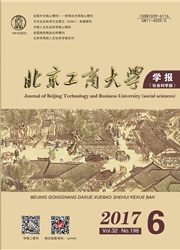

 中文摘要:
中文摘要:
基于2003—2014年"一带一路"沿线国家的跨国面板数据,运用随机前沿引力模型,研究了中国对外直接投资逆向技术溢出的影响因素。研究表明,签订双边自贸协定对中国对外直接投资逆向技术溢出存在显著的正向效用,"一带一路"沿线东道国的技术创新水平对中国对外直接投资逆向技术溢出具有显著的正面影响,而东道国与中国之间的文化差异和经济距离在一定程度上阻碍了中国对外直接投资的逆向技术溢出。而对不同国家的分析表明,2003—2014年,中国通过"一带一路"沿线国家OFDI获得的国外研发溢出效率排名前5位的国家分别为新加坡、巴基斯坦、越南、匈牙利和斯里兰卡。技术无效率函数的估计结果发现,东道国法律与腐败监管的严厉程度、东道国经济自由度在降低中国对"一带一路"沿线国家OFDI逆向技术溢出无效程度中发挥着重要的作用。因此,"走出去"的中国企业必须高度重视东道国当地的文化环境,同时应加快向东南亚、南亚及中亚转移劳动密集型产业。最后,应制定政策鼓励国内研发实力强的企业对科技资源密集型的发达国家和地区进行对外直接投资。
 英文摘要:
英文摘要:
Based on the transnational panel data of the countries along "the Belt and Road" during the years from 2003 to 2014,with the use of Stochastic Frontier Gravity Model,this paper examines the factors of influence on the reverse technology spillover of China's outward foreign direct investment(OFDI).The research finds that the bilateral free trade agreements and the technological innovation level of a host country along "the Belt and Road" have the significant positive effect on the reverse technology spillover of China's OFDI,but the cultural difference and the economic distance between China and the host country hinder the reverse technology spillover to some extent.The analyses of various countries in different years indicate that the top five countries of efficiency of the reverse spillover of China's OFDI are respectively Singapore,Pakistan,Vietnam,Hungary and Sri Lanka.The estimate result of technology efficiency function finds that a host country's law and its severity of corruption supervision and its economic freedom play an essential role in reducing the invalid degree of reverse spillovers of China's OFDI to the countries along "the Belt and Road".Therefore,the "Going Global" Chinese enterprises must attach great importance to the cultural environment of the host country and also must accelerate the transfer of labor-intensive industries to the Southeast Asia,South Asia and Central Asia.Finally,policies should be adopted to encourage the firms with strong research and development capability to make the OFDI in the science and technology resource-intensive developed countries and regions.
 同期刊论文项目
同期刊论文项目
 同项目期刊论文
同项目期刊论文
 期刊信息
期刊信息
